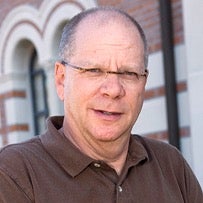Political science professor Bob Stein has spent more than four decades turning research into action and students into civic leaders. This year, he’s being recognized for that work with the 2025 Y. Ping Sun Award for Outstanding Community Engagement, one of Rice University’s highest honors for service beyond the hedges.
Established in 2023, the award honors members of the Rice community who have demonstrated unusually devoted service to the city of Houston. It is named for Y. Ping Sun, university representative and longtime community ambassador, in recognition of her thoughtful leadership and commitment to public service.

For Stein, the Lena Gohlman Fox Professor of Political Science who has taught at Rice for 46 years, the recognition is especially meaningful because of his connection to Sun and the award’s origin.
“When we began integrating civic engagement into our student experience, Ping was instrumental in helping us form relationships with city, county and state organizations,” Stein said. “She opened the doors that made so much of our work possible.”
That work included the founding of the Center for Civic Engagement (now the Center for Civic Leadership) — a milestone that grew out of Rice’s accreditation process in the early 2000s. As the dean of the School of Social Sciences at the time, Stein helped shape the university’s Quality Enhancement Plan, which called for more hands-on, experiential learning. The new center brought that vision to life and embedded civic engagement into the Rice student experience.
Throughout his career, Stein has promoted the idea that research and service should go hand in hand. His work has addressed voting access, emergency preparedness, behavioral response to severe weather events and public service programs for low-income communities. His research has been supported by the National Science Foundation, the Pew Charitable Trusts, the city of Houston, the Environmental Defense Fund and the Arnold Foundation, among others.
“My research has always been applied,” he said. “There’s a clear line from my work to policy decisions and public outcomes.”
One standout example involved a collaboration with the Houston Public Library to prioritize renovations across its branches. Stein assembled a student team to analyze usage data, circulation and demographics, and what they found challenged long-held assumptions.
“The students discovered that people didn’t always use the library closest to their homes,” Stein said. “They went to the ones along their daily commutes — near work, school or errands. That insight helped city leaders make smarter, more equitable decisions that impacted multiple neighborhoods.”
Those are the kinds of lessons Stein said he hopes students take away from his classes — not just about how policy is made but how change happens.
“Good public policy has to be good politics, too,” he said. “Progress comes when you can build coalitions — often with people who may care about an issue for different reasons.”
Stein recently put that philosophy into action when he spoke at a city council meeting after discovering that a protected bike lane in his neighborhood had been quietly removed. His remarks focused on the broader public safety implications, and they quickly went viral. The city later revised its plans and postponed additional removals.
“That experience reminded me that sometimes the best lesson is to show up and speak out,” he said.
In addition to his teaching and civic work, Stein is a fellow in urban politics at Rice’s Baker Institute for Public Policy. He is also the author or co-author of several books on policy and governance and has twice received Rice’s George R. Brown Award for Superior Teaching.“I see my role as both teacher and citizen,” Stein said. “If students leave my class with a better understanding of how politics and policy intersect — and how they can make an impact — then I’ve done my job.”

